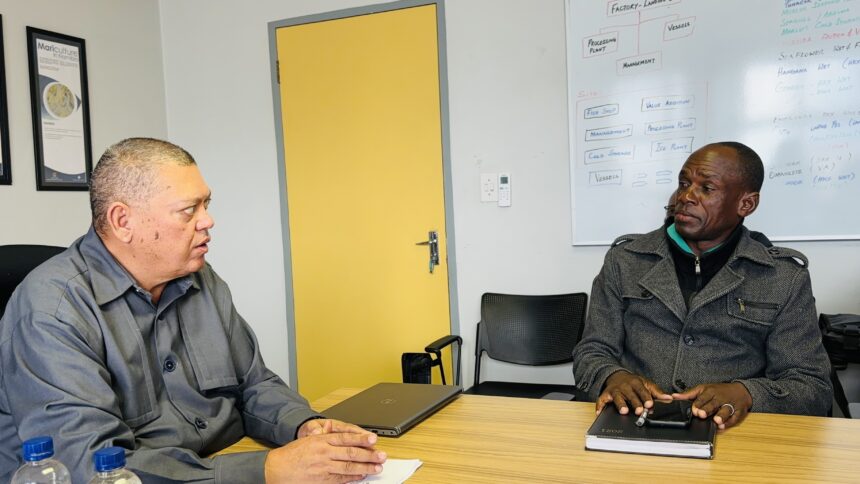Isabel Bento
WALVIS BAY – Fisheries minister Derek Klazen on Friday reaffirmed his ministry’s commitment to finding ways of offering people stable employment in the fishing industry, especially given the high national unemployment rate.
In a meeting with fishermen’s representatives at Walvis Bay, Klazen said: “We cannot afford to have some Namibians staying at home and receiving nothing while others go to work. Our goal is to find practical solutions for sustainable employment in the fishing industry.”
He noted that the ministry is collaborating with fishing companies, specifically targeting the hake sector, which resumed operations on 1 November.
A core aspect of the plan, includes negotiating with companies to provide stable employment for fishermen who previously experienced job disruptions due to quota limitations.
He noted that companies that were initially awarded quotas lacked the resources to consistently support a fishing vessel, resulting in irregular employment for the workers.
Klazen said while the ministry allocates quotas to companies, it does not directly control how workers are managed once they are employed.
“From January onwards, these fishermen will be employed full-time by their respective companies. The quotas belong to the ministry but are assigned to companies to create jobs for our people.
Any labour disputes will fall under union negotiations, not the ministry,” he said.
Despite challenges in securing adequate fishing quotas to sustain employment at sea, the minister urged fishermen to consider factory-based jobs, where year-round work is more feasible.
The ministry has focused substantial effort and resources on supporting companies and ensuring quotas are allocated effectively.
The chairperson of the Okapale Fishermen Group, Godfried Kuhanga, said in addition to employment problems, fishermen also face broader issues, including health assessments required for sea-based roles, which have posed challenges for some.
He urged the ministry to offer counselling to help fishermen adjust to the demands of their roles, especially those transitioning from years of inconsistent work.
“We have members who faced difficulties over many years; some need counselling to adjust to the realities of work in both sea and factory environments,” he said.
-Nampa



